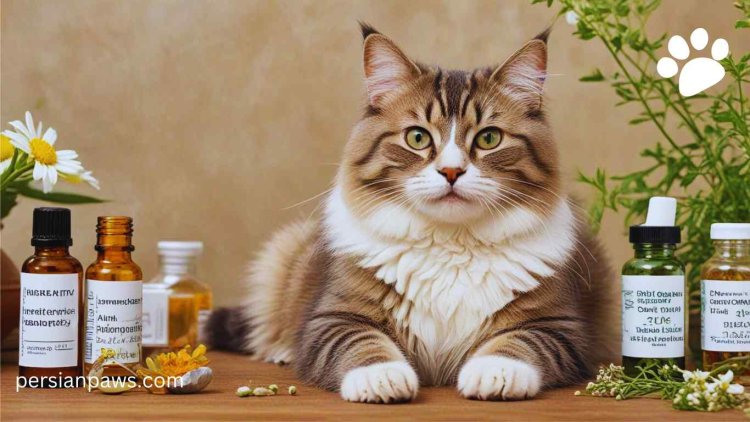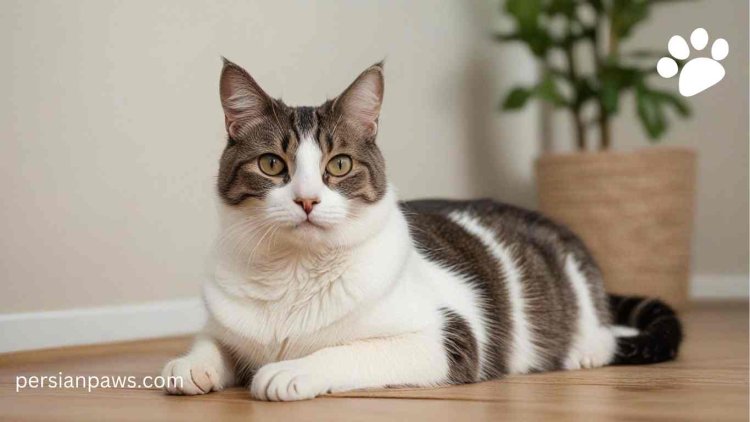How to Stop Over Grooming of Cats with Homeopathic Remedies
Homeopathic remedies like Arsenicum album or Ignatia can help stop over-grooming in cats by calming anxiety or stress-related behaviors.

Table of Contents
- Common Causes of Over-Grooming
- Homeopathy and Its Application in Pet Care
- The Role of Homeopathy in Treating Pets
- Homeopathic Remedies for Over-Grooming in Cats
- Benefits of Each Remedy
- Safe and Effective Use of Homeopathic Remedies
- Natural Approaches to Reduce Over-Grooming
- Case Studies and Testimonials
- Expert Insights
- Conclusion
Cats are curious creatures that love to groom themselves. However, when this behavior becomes excessive, it can lead to over-grooming. This condition is known as Cat Hyperesthesia Syndrome or Psychogenic Alopecia.
If you notice your cat excessively licking, biting, or pulling out their fur, it may be a sign of over-grooming. This can result in bald patches, irritated skin, and even infections. While there can be various underlying causes for over-grooming such as allergies, parasites, or stress, homeopathy offers a natural and gentle approach to manage this condition.
Common Causes of Over-Grooming
Over-grooming can result from various factors, including:
●Stress and Anxiety: Changes in the environment, new pets, or even rearranging furniture can help anxiety in cats.
●Allergies: Food, pollen, or dust can cause allergic reactions, leading cats to over-groom to relieve itching.
●Skin Conditions: Fungal infections, flea pests, or other skin issues can cause discomfort.
●Boredom: Lack of mental and physical stimulation can lead to over-grooming as a coping mechanism.
● Medical Conditions: Hormonal imbalances or other medical issues may also contribute.
Homeopathy and Its Application in Pet Care
Homeopathy is a comprehensive approach that treats the individual as a whole rather than focusing solely on symptoms. It uses natural substances in very small doses to stimulate the body's healing processes.
The Role of Homeopathy in Treating Pets
Homeopathy has gained popularity among pet owners for its gentle and minimally harmful remedies. It can address various health issues, including over-grooming, by targeting the root causes.
Homeopathic Remedies for Over-Grooming in Cats
Several homeopathic remedies can help manage over-grooming in cats. Here are 10 commonly used remedies:
1. Lycopodium: For cats with over-grooming due to restlessness and anxiety. These cats often seem nervous and may groom excessively to calm themselves.
2. Pulsatilla: Suitable for cats that exhibit over-grooming behavior as a response to environmental changes or stress. These cats may also be very affectionate and seek constant assurance from their owners.
3. Arsenicum album: Effective for cats with obsessive grooming habits, especially those who are particular or anxious. These cats might be very meticulous about their grooming and can become distressed if their routine is disrupted.
4. Sepia: Recommended for cats with over-grooming related to hormonal imbalances or changes. This remedy is particularly helpful for female cats experiencing issues related to their reproductive cycles.
5. Ignatia: Useful for cats that over-groom as a coping mechanism for grief or loss. These cats may have experienced the loss of a companion or a significant change in their living situation.
6۔ Sulphur: For cats that have itchy skin and over-groom to relieve the discomfort. These cats might also show signs of skin irritation, such as redness or unreliability.
7. Nux vomica: Suitable for cats that over-groom due to irritability or digestive issues. These cats may also exhibit other signs of digestive distress, such as vomiting or diarrhea.
8. Thuja: Recommended for cats with over-grooming caused by vaccine-related stress or anxiety. These cats might have developed grooming issues following a vaccination or a medical procedure.
9. Silicea: Effective for cats with over-grooming due to skin conditions or weakened immune systems. This remedy helps strengthen the immune system and improve skin health.
10. Natrum muriaticum: Helpful for cats that over-groom due to anxiety from changes in their environment. These cats may become particularly stressed by moves, new household members, or other significant alterations to their routine.
Integrating these remedies can help address the underlying issues contributing to over-grooming and improve overall well-being. Always consult a veterinarian before starting any new treatment.
Benefits of Each Remedy
●Lycopodium: Known for its ability to reduce anxiety, Lycopodium promotes relaxation and helps in managing mild stress, making it a great aid for overall mental well-being.
●Pulsatilla: This remedy addresses stress-related grooming by calming the cat and reducing excessive attention to grooming behaviors, creating a more relaxed and comfortable state.
●Arsenicum album: By reducing obsession with grooming, the Arsenicum album enhances overall well-being, helping cats to break free from repetitive grooming patterns and improving their quality of life.
●Sepia: Balancing hormones and alleviating stress, Sepia is particularly beneficial for female cats experiencing hormonal imbalances, contributing to a more stable and relaxed behavior.
●Ignatia: Offering relief from emotional distress and grief, Ignatia is effective in helping cats cope with changes, losses, or distressing events, promoting emotional strength.
●Sulphur: Known to reduce itching and skin irritation, Sulphur is useful for cats with skin issues, providing comfort and reducing scratches.
●Nux vomica: This remedy calms irritability and digestive discomfort, making it ideal for cats with sensitive stomachs or those experiencing stress-related digestive issues.
●Thuja: Thuja reduces anxiety from vaccines and other stressors, providing a calming effect that helps cats remain relaxed during and after stressful events such as vet visits.
●Silicea: Strengthening the immune system and aiding in the healing of skin conditions, Silicea is beneficial for overall health and strength, supporting recovery from skin problems.
●Natrum muriaticum: This remedy calms anxiety and promotes a stable mood, helping cats maintain emotional balance and reducing the impact of stress on their daily lives.
Safe and Effective Use of Homeopathic Remedies
Guidelines for Using Homeopathic Remedies
●Dosage: Follow the recommended dosage on the product label or consult with a homeopathic professional.
●Frequency: Manage the remedy as directed, usually one to three times daily.
●Method: Thin the remedy in water and manage using a dropper or mix it with your cat's food.
Monitoring Your Cat's Response
●Watch for Improvements: Observe changes in grooming behavior and overall well-being.
●Adjust as Needed: If there's no improvement after a week, consult with a veterinarian for guidance.
Natural Approaches to Reduce Over-Grooming
Stress-Reduction Techniques

●Create a Calm Environment: Provide safe spaces for your cat to retreat and relax.
●Play and Exercise: Engage your cat in regular playtime to reduce stress and dullness.
Environmental Enrichment
●Toys and Puzzles: Introduce interactive toys and puzzles to stimulate your cat's mind.
●Scratching Posts and Climbing Trees: Offer various outlets for your cat to express natural behaviors.
Diet Adjustments

●Balanced Nutrition: Ensure your cat's diet meets all nutritional needs to support skin health.
●Remove Allergens: Identify and remove potential food allergens that may contribute to over-grooming.
Case Studies and Testimonials
Marie's Story
Marie, a 7-year-old domestic shorthair, developed a habit of over-grooming her front legs and belly, leading to hairless patches and irritated skin.
After consulting with a veterinarian, Marie's owner started her on a routine of Lycopodium, recommended for her symptoms of restlessness and anxiety when left alone.
Over several weeks, the over-grooming behavior significantly reduced, and Marie's coat began to grow back.
Testimonial:
"Finding natural medicine for my cat's too much grooming has been good. Her skin and fur got better, and Marie seemed happier overall. It's nice knowing there's a gentle, natural way to help her feel better."
Max's Story
Max, an 8-year-old Siamese, had always been a nervous cat, but after a move to a new home, his over-grooming behavior increased. He licked and chewed at his fur until hairless patches appeared on his legs and stomach.
After consulting with a homeopathic professional, Max's owner started him on Pulsatilla to help calm his nerves and reduce stress-related grooming behaviors.
Within a few weeks, Max's fur began to grow back, and he seemed much more relaxed in the new environment.
Testimonial:
"I was unsure about using homeopathic remedies for my cat, but I'm so glad I did. After incorporating Pulsatilla into Max's routine, his grooming behavior improved significantly, and he seems much more at ease in our new home."
Expert Insights
Homeopathic Expert Quote
"Homeopathy offers a gentle and effective approach to managing over-grooming in cats, addressing the fundamental causes for long-term results." – Dr. Darren Smith, Homeopathic Expert
Veterinarian Quote
"While homeopathic remedies can be beneficial, cat owners must consult with a veterinarian to ensure they are using safe and appropriate treatments for their pet's health needs." – Dr. John Doe, Veterinarian
Conclusion
Over-grooming in cats is a complex issue that requires a thoughtful approach. Homeopathic remedies can offer gentle and effective solutions, addressing the fundamental causes and promoting overall well-being.
Remember to consult a veterinarian before starting any treatment plan to ensure safety and efficacy.
What's Your Reaction?














